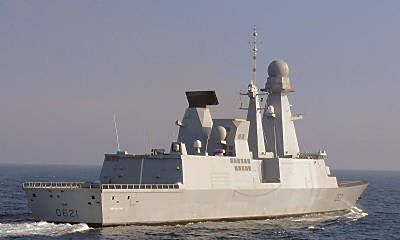CONTINGENCY OPERATING SITE WARRIOR, Iraq — Since the onset of Operation Iraqi Freedom in 2003, thousands of soldiers have witnessed progress throughout their deployments to Iraq.
For Army Sgt. Kevin Chapman, a squad leader with the 1st Infantry Division’s Company D, 2nd Battalion, 12th Cavalry Regiment, 1st Advise and Assist Task Force, being a part of the transition from Operation Iraqi Freedom to Operation New Dawn has shaped his career as a soldier.
Chapman said he always wanted to serve in the armed forces, and enlisted in the Army in 2005.
“I joined the Army to try to make a difference for my country,” the Conyers, Ga., native said. “I knew it was something I could make a career out of and do for the rest of my life.”
From 2005 to 2007, Chapman said, he was as a gunner for the mortar platoon with the 1st Armored Division’s 1st Battalion, 36th Infantry Regiment, from Friedberg, Germany. He later was tasked as the radio and telephone operator in the fire direction center.
After the deployment, Chapman was reassigned to Fort Hood, Texas, where he currently serves.
After deploying twice during the middle and latter parts of Operation Iraqi Freedom, Chapman said, his current Iraq tour in support of Operation New Dawn is different because of U.S. forces’ current role to advise Iraqi security forces.
“During my first deployment we did presence patrols and terrain denial,” said Chapman. “We would go out to show we were there, and we were a force. We were more aggressive during [my first tour], and we didn’t work directly with the [Iraqi forces].”
Chapman said he saw the transition in operations begin during his second deployment in 2008.
“In 2008 and 2009, I witnessed transition,” he said. “After the agreements between the U.S. and Iraq, we had to have an [Iraqi] counterpart with us, and we worked closely with them, training them on how to shoot mortars.
“Instead of being the dominant force and telling them what to do and how to do it,” he added, “we asked for suggestions and their opinions on the training we gave.”
U.S. and Iraqi forces cooperated and combined strengths to develop training and mission schedules, while Iraqis took the lead, Chapman said.
Army Spc. John Charles, one of Chapman’s squad members, said prior experiences definitely influence Chapman’s ability to be a great leader.
“He gets a lot of responsibility dumped on him, more than anybody else, and he handles it with a sense of humor and a pride about him that I’ve not seen from another soldier,” said Charles, a Houston native.
Chapman consistently performs above his current rank, Charles added.
Now, with the mission of an advise and assist task force, Chapman said it is important for U.S. forces to teach the Iraqi forces to maintain an active presence in their country.
“We want them to take the reins, step in and continue taking over everything we do,” Chapman said. “It’s important for us to teach and show them, and hopefully when we leave, they will be better able to utilize the training we’ve given them, and it will continue making them better.”
Source:
U.S. Department of Defense
Office of the Assistant Secretary of Defense (Public Affairs)

 von
von 